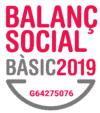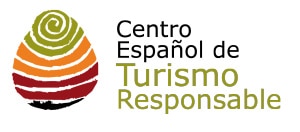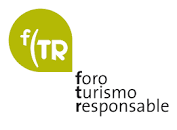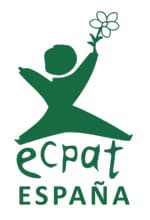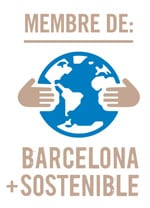Last Thursday, October 6, we held the “Responsible Tourism: proposals to promote the ecological transition” Conference with the aim of promoting a critical reflection in relation to tourism and its impact on the territory.
In total, twenty expert panelists took to the stage to share their knowledge and reflect on the challenges and opportunities of tourism in the Catalan territory. The large number of agents who participated allowed a multidisciplinary debate to be generated around the need to move towards a tourism model aligned with the social and environmental challenges of the moment and capable of generating abundance and prosperity for the destination as a whole.
Four round tables, nineteen presentations and an infinite number of proposals.
Ms. Marta Domènech, Director General of Tourism of the Generalitat de Catalunya, opened the Conference with a clear invitation to work in a coordinated manner to rethink the current tourism model based on more ambitious paradigms that put community well-being at the center of their activity school of people. Subsequently, Mr. José Antonio Donaire, PhD in Geography and Professor at the Faculty of Tourism at the University of Girona, explained the need to “reconvert the sector into a driving force for ecosocial transformation” and emphasized the urgency of moving towards a model responsible that “takes into account the new energy and ecological scenarios”, that “favors the redistribution of tourist flows”, that “analyzes labor relations in a context marked by automation and robotization” and that “allows efficient management of increasing availability of leisure time in contemporary societies”.
Once the initial conceptual scenario was detailed, we kicked off the round table on the challenges of Responsible and Sustainable Tourism towards the socio-ecological transition.
In this context, Ms. Marta Domènech (Director General of Tourism of Catalonia), and Mr. Xavier Suñol (Director of Tourism and Creative Industries of Barcelona City Council) identified the main challenges in the sector and made known the position of the local administrations. In the case of Barcelona City Council, Mr. Suñol emphasized the “need to diversify the city’s economy to reduce dependence on the sector and work with more responsible and resilient models”.
On the other hand, Mr. Daniel Imbert (Researcher and consultant in territory and tourism and Teacher at CETT-UB) emphasized the importance of “pedagogy among tourism consumers”, and Mrs. Macarena Bergada (President of the Association of Guides of Catalonia) presented the good practices developed by AGUICAT to responsibly manage the resumption of tourist activity after the pandemic.
Subsequently, the second round table of the Conference addressed tourist activity from the perspective of cooperatives and the Social Economy with the aim of identifying the potential for convergence between the ESS field and the Tourism Sector, and detecting the opportunities derived from developing an alternative model based on the culture of cooperation and solidarity.
In this case, Ms. Roser Hernández (Deputy Director General of Social Economy, Third Sector and Cooperatives of the Department of Business and Work), Mr. Guillem Llorens (President of the Social Economy Association of Catalonia – AESCAT) and Mr. Álvaro Porro (Commissioner for Social Economy, Local Development and Food Policy. Barcelona City Council) shared the desirability of positioning the Social Economy in the tourist environment to contribute to developing a fairer, more inclusive and transformative model.
At this same table, Ms. Inmaculada Díaz (Teacher and researcher in Tourism and Geography of the TUDISTAR group) and Mrs. Laura Hernàndez (Member of the Calidoscoop Cooperative) opened the debate around the need to promote “proximity tourism” to “reduce emissions derived from tourist mobility” and “reinforce the connection of visitors with responsible initiatives in the country “.
After the coffee break, where attendees could enjoy a piscolabis organized by the Mescladís organization and a book stall organized by La Tribu Llibreria, we opened the third round table of the Conference.
The guest speakers were Ms. Núria Abellan (Teacher and researcher at CETT-UB), Ms. Mireia Bosch (Options intercooperation technique), Mr. Raül Valls (Researcher and Coordinator of Albasud) and Mr. Francesc Cots (Eco-Union Senior Climate Change Consultant). In this case, they all go present new imaginaries to move towards more resilient tourism models, and addressed issues such as “the analysis of tourism activity from feminist research”, the “incorporation of the gender perspective”, “the search for answers to the labor precariousness of the sector” or “the reformulation of new legal limits of the right to travel”.
The Aethnic Network, a social base proposal to move towards a more responsible and cooperative model.
Finally, the Conference culminated with the official launch of the Aethnic Network and the presentation of four tourist experiences based on Social Economy principles. Specifically, Ms. Valle Grande and Eli Vico (Centre Ocupacional La Sínia) staged the inclusive project of “L’hort al terat”, Ms. Àgia Luna (Director of Artichoke) presented the dramatized routes of the “Journey to Grandma’s Shop” initiative, Mr. Ramon Furriols (Executive Director of Project Aurora) introduced the Vigata project “No limits bikes”, and Mrs. Anna Pijuan (Partner of Mas Casas Cruïlles) delighted us with a holistic and regenerative proposal in the lands of the Empordà.
See the details of the Aethnic Network here.
In general, if one thing became very clear, it is that the current tourism model needs to be rethought to adapt it to the climate and social challenges of the moment and that it is essential to promote participatory governance in order to work collaboratively and provide answers that benefit the whole of the destination.
From here, we thank all the speakers who contributed to generate this rich debate, and we appreciate the participation of all the people who attended.
The Conference was developed thanks to the support of the Generalitat de Catalunya, the Barcelona City Council and the Fabra i Coats Precinct, who ceded the space to Aethnic for the realization of the event.





